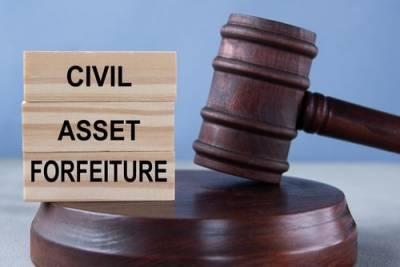 Civil asset forfeiture is a controversial practice in which police officers or other law enforcement officials seize money or other property from individuals suspected of criminal activity. In many cases, these forfeitures are performed without a court order or a criminal conviction. This form of forfeiture has been widely criticized for its lack of oversight and accountability. In recent years, there have been calls for reform to the ways civil asset forfeitures are conducted by law enforcement officials across the country. Now, Congress may be taking action to limit these practices and ensure greater transparency and fairness in how they are used.
Civil asset forfeiture is a controversial practice in which police officers or other law enforcement officials seize money or other property from individuals suspected of criminal activity. In many cases, these forfeitures are performed without a court order or a criminal conviction. This form of forfeiture has been widely criticized for its lack of oversight and accountability. In recent years, there have been calls for reform to the ways civil asset forfeitures are conducted by law enforcement officials across the country. Now, Congress may be taking action to limit these practices and ensure greater transparency and fairness in how they are used.
People who are convicted of crimes will often be required to turn over any money or property they earned through illegal activity. These criminal forfeitures require prosecutors to meet a certain burden of proof. Civil asset forfeitures, on the other hand, may be performed even if a person is never arrested or charged with a crime. Law enforcement officials may seize any money or property that they believe to be connected with criminal activity. To recover their property, the owner will have the burden of proof to show that they are innocent.
Many asset forfeitures are performed by federal agencies, and a large percentage of cases are handled administratively rather than through the legal system. In cases involving non-judicial forfeitures, the agencies that seized money or property will determine whether assets should be forfeited. Because agencies can keep assets that are forfeited, they have an incentive to rule against people who are seeking to recover their assets.
State and local law enforcement agencies also regularly perform forfeitures, although they may need to meet higher burdens of proof under state laws when doing so. However, they may attempt to get around these laws by working with federal agencies. A federal program known as "equitable sharing" allows police and other officials to receive as much as 80 percent of the proceeds of assets that are forfeited. By turning over assets to federal officials, who may then use the non-judicial forfeiture process, police departments and other law enforcement agencies often benefit financially.
To address ongoing concerns about the use of civil asset forfeiture, federal lawmakers have introduced legislation that is meant to reform these practices. The Fifth Amendment Integrity Restoration Act (FAIR Act) would eliminate administrative or non-judicial foreclosures, ensuring that people will be able to use the proper legal procedures to challenge the forfeiture of their property. It would also place the burden of proof on the government to provide clear and convincing evidence that the money or assets seized by law enforcement were connected to criminal activity. Finally, it would help reduce the incentives for those who perform forfeitures by eliminating equitable sharing and placing forfeited assets in the control of the Treasury Department rather than letting the agencies that performed forfeitures keep the proceeds. While it remains to be seen whether this law will be passed, the fact that it has bipartisan support provides some hope that its reforms will be implemented.
At Woolf & Ross Law Firm, LLC, we understand the problems that asset forfeiture can cause for those who have had their money or property confiscated by law enforcement. We are dedicated to protecting our clients' rights, and we can help challenge these forfeitures and recover property that was seized, while also working to defend against any criminal charges a person may face. To get legal help and representation in these issues, contact our Hartford criminal defense attorney at 860-290-8690 and arrange a free consultation.
Sources:
https://www.forbes.com/sites/nicksibilla/2023/03/19/new-bill-in-congress-would-ban-nonjudicial-civil-forfeiture/?sh=244fcb792275
https://ij-org-re.s3.amazonaws.com/ijdevsitestage/wp-content/blog/policing-for-profit-3-web.pdf
https://ij.org/issues/private-property/civil-forfeiture/frequently-asked-questions-about-civil-forfeiture/
 50 Founders Plaza
50 Founders Plaza

